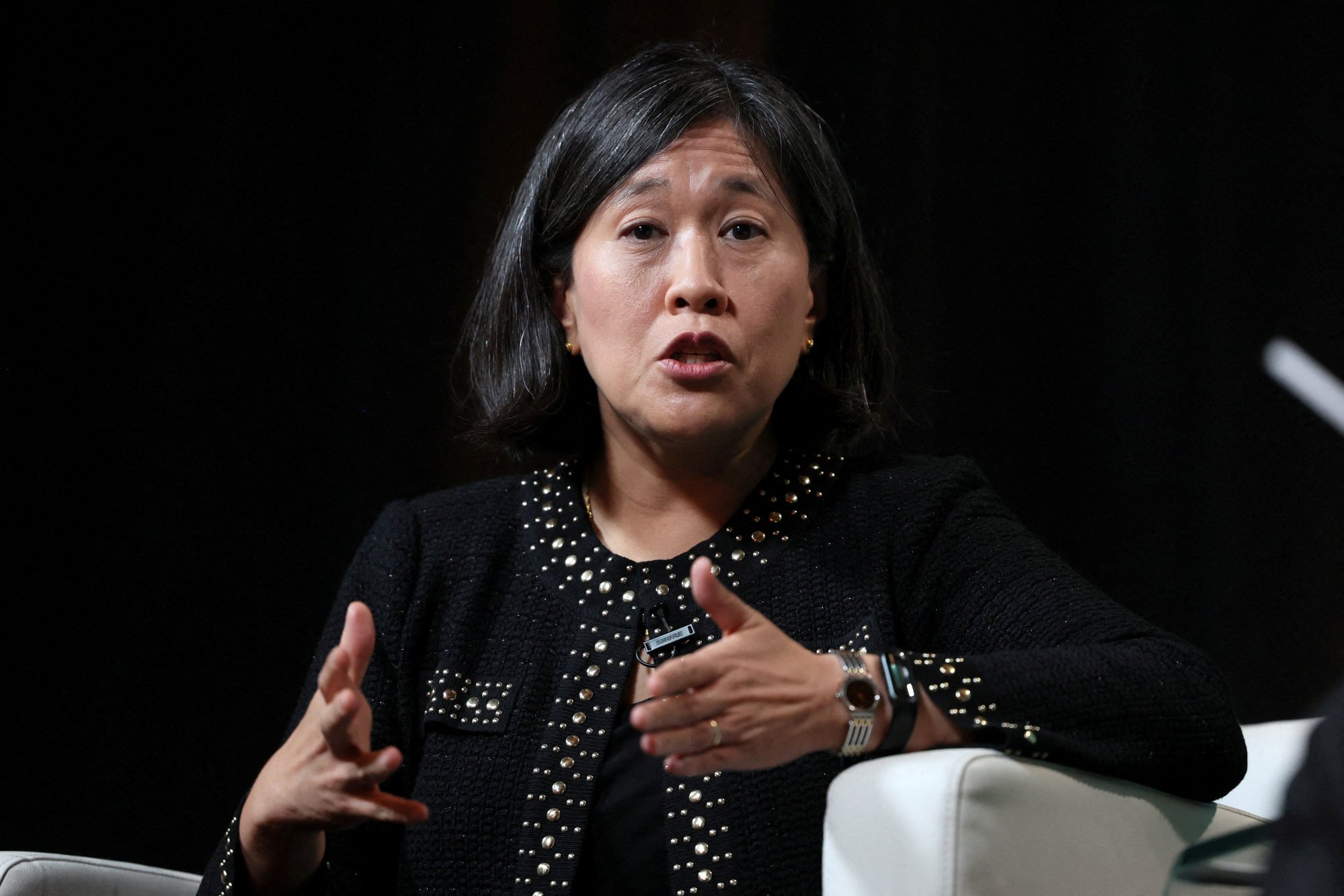China’s commerce minister, Wang Wentao, expressed Beijing’s “solemn concerns” over US tariffs and Taiwan-related issues in the economic and trade domain during a meeting with US Trade Representative Katherine Tai on Monday.
Wang and Tai conducted “professional and in-depth” communication on bilateral and multilateral economic and trade issues of mutual concerns, as they met on the sidelines of the 13th Ministerial Conference of the World Trade Organization in Abu Dhabi, according to China’s Ministry of Commerce.
The US side raised concerns regarding China’s excess capacity of steel on the global market and the imbalances caused by Beijing’s “state-led, non-market approach to trade policy”, according to a USTR readout.
It said that Tai expressed the need for continued communication and collaboration between the two countries, while the two sides agreed to work on areas of shared cooperation, including their respective commitments to the WTO.

On the eve of the four-day conference, the USTR office published a 80-page report on China’s membership in the WTO, calling China “the biggest challenge to the international trading system”.
Beijing responded by calling the US compliance assessment groundless and a distortion of the facts, while accusing Washington of trade bullying, unilateralism and disrupting international supply chains.
Tariffs and Taiwan remain two major sore points in relations between the world’s two largest economies.
Washington has maintained tariffs on Chinese goods introduced during Donald Trump’s presidency – at an average of 19.3 per cent. The former US president and front runner for this year’s Republican presidential nomination has said he would impose additional tariffs on China if elected again, possibly in excess of 60 per cent.
Beijing slams ‘smear tactics’ in US assessment of China’s ‘predatory’ economy
Beijing slams ‘smear tactics’ in US assessment of China’s ‘predatory’ economy
In 2023, China was dethroned as the top US source of imports for the first time in 17 years, as Mexico outpaced it in terms of the total value of goods.
Meanwhile, the US and Taiwan have moved closer in the economic fields. Last year, the two sides signed a deal which included measures meant to accelerate trade between the markets.
Beijing regards the move as violating the one-China principle and contravening the US commitment of maintaining only unofficial relations with Taiwan, which it views as a breakaway province to be united eventually with the mainland, by force if necessary.
The US and most other countries do not recognise Taiwan as an independent country; however, Washington is legally committed to supporting the island’s self-defence capability.
China’s 17-year run as top source of US imports ends as Mexico rises
China’s 17-year run as top source of US imports ends as Mexico rises
During a separate high-level discussion on trade and sustainable development on the first day of the WTO conference, Tai targeted “non-market economic policies” – an apparent jab at China without naming the country specifically.
She said that there was “incredible potential in the green economy”, but the vision could not be fully achieved “when some members use non-market economic policies to build global market dominance that can be abused”, according to the USTR office.
“Non-market policies and practices undermine fair competition. They create trade distortions and non-market excess capacity, which undermine our sustainability objectives and climate goals.
“They also block opportunities for members of all stages of development to participate in supply networks,” Tai said.
Thanks to the rapid development built upon government subsidies and a complete manufacturing infrastructure system, Chinese companies now have a near-monopoly in the global production of solar panels and lithium batteries, a key component for electric vehicles. The country also became the world’s largest exporter of EVs in 2023.
But the sectors are also facing sheer overcapacity issues in the country, which have prompted foreign policymakers’ concerns about cheap Chinese imports distorting their domestic markets.

